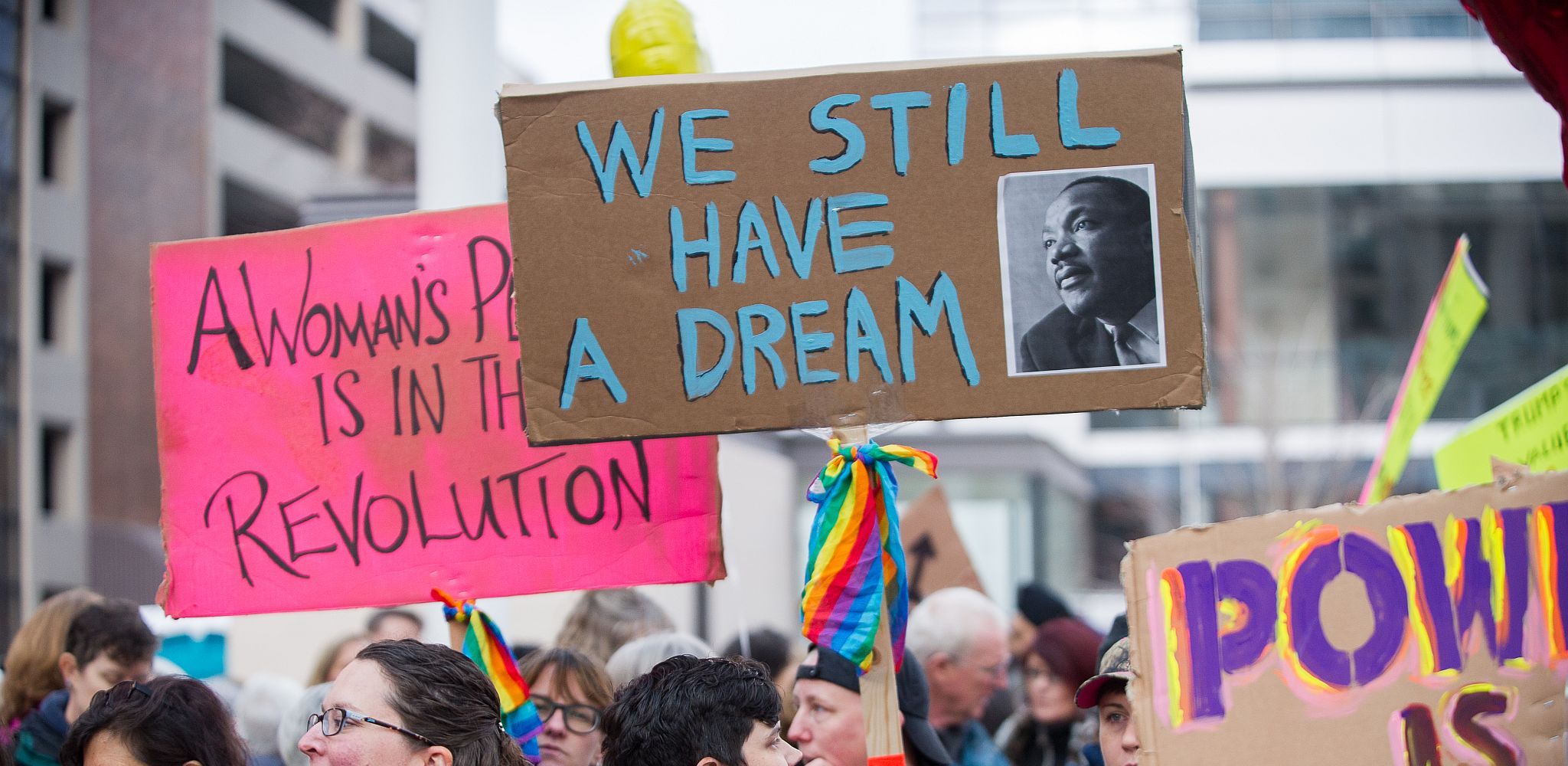
Definition:
A prophetic critique of the social, political, religious and economic structures.
Community Peacemaker Teams
https://www.cpt.org/resources/witness
Types of public witness activities include:
- Organizing speakers, movies or petition drives
- Arranging visits to organizations that work with people on the margins
- Asking preachers to speak on social issues
- Creating/displaying yard signs, banners & posters
- Distributing leaflets & posters etc.
- Participating in boycotts & divestment campaigns
- Posting items on social media
- Wearing clothing or buttons with messages
- Writing letters to newspaper editors, diocesan newspapers, alumni newsletters etc.
- Joining an organization that does public witness work
- Expressing values in conversations with family, friends & neighbors
- Can also include legislative advocacy & civil disobedience
Boycott, Sanction & Divestiture (BSD) movements can be so powerful that some corporations and even countries are afraid of their effect and try to stymie them.
According to the International Center on Nonviolent Conflict, having just 3.5% of the population actively participating in peaceful public protests can bring about political and social change. In U.S. history, the 4 largest demonstrations have been:
- 2017 Women’s March: 3 – 4.6 million people
- 2018 Women’s March: 5 million people
- March for our Lives (2018): 2 – 2 million people
- March for Science (2017): 1 million people
Boycotts & Strikes
Montgomery Bus Boycott (1955-1956)
Regarded as the first large-scale U.S. demonstration against segregation. Resulted in a federal court ruling that any law requiring racially segregated seating on buses violated the 14th Amendment to the U.S. Constitution.
South Africa Apartheid Boycott (1959-1994)
Protesting apartheid — a system of institutionalized racial segregation that existed in South Africa and South West Africa (now Namibia) from 1948 until the early 1990s. Apartheid was characterized by an authoritarian political culture, which ensured that South Africa was dominated politically, socially, and economically by the nation’s minority white population.
As a result of the boycott:
South Africa was forced to leave the Commonwealth of Nations in 1961.
South Africa was suspended from the 1964 Tokyo Olympics and expelled from the Olympics in 1970.
The United Nations General Assembly passed a resolution establishing a Special Committee against Apartheid and calling for imposing economic and other sanctions on South Africa.
An academic boycott of South Africa began in 1965.
The release of Nelson Mandela from prison in 1990 after 27 years and started the negotiations to end apartheid in South Africa.
Led to South Africa’s first democratic elections in 1994.
Delano Grape Strike (1965-1970)
Over 2,000 farm workers refused to go to work picking grapes near Bakersfield, California. Led by Mexican-American civil-rights activist Cesar Chavez, they asked Americans to boycott the popular California fruit because of the paltry pay and poor work conditions agricultural laborers were forced to endure. The strike led to the creation of the nation’s first farm workers union—the United Farm Workers of America (UFW).
Coalition of Immokalee Workers (1993-2005)
Results:
By 1998, farmworkers had won industry-wide raises of 13-25%
In 2005, amidst growing pressure, Taco Bell became the first fast food restaurant chains to agree all of the CIW’s demands to improve wages and working conditions for Florida tomato pickers in its supply chain.
The Fair Food Program standards commits buyers to only buy Florida tomatoes from growers in good standing with the FFP, and to cease purchases from growers who have failed to comply with the code of conduct.
